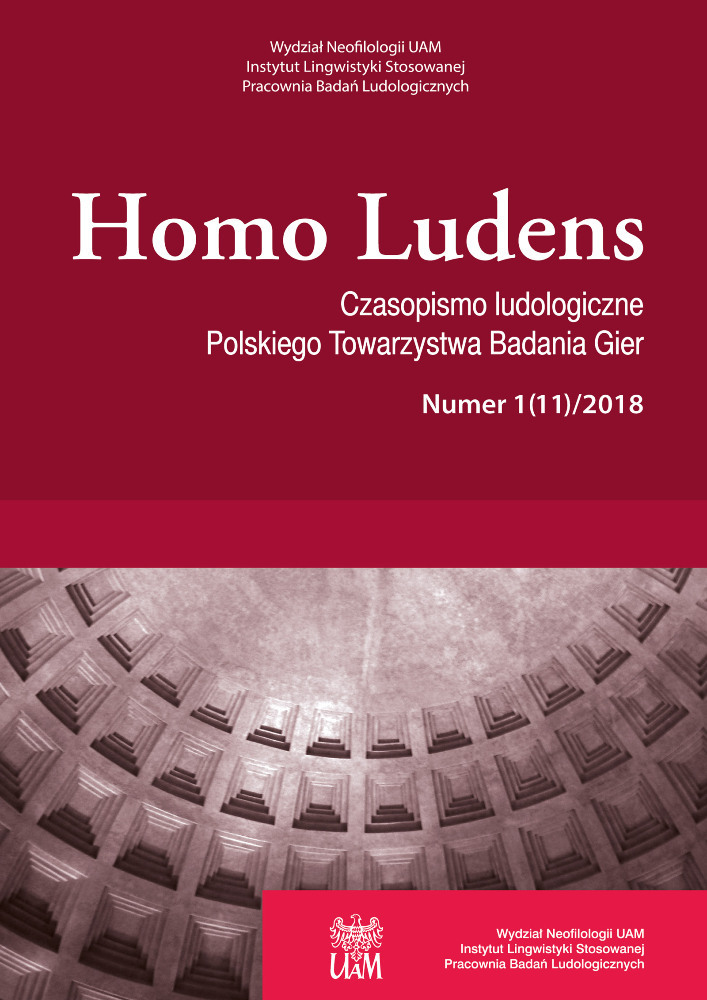Abstract
The aim of this article is to demonstrate the relationship between Another World and Emmanuel Lévinas’s philosophy of dialogue. The researcher, taking into account the French philosopher’s reflections on separation, atheism and Face, proposes to read the work of Éric Chahi as a self-reflective form of authorial expression. Another World is not only a thorough look at the relationship between players and the Other, but also a reflection on programming as a simultaneous catalyst for isolation and opening up to the Other.
References
Brøderbund Software (1989). Prince of Persia [Apple II]. Brøderbund Software, USA.
Campo Santo (2016). Firewatch [PC]. Panic, USA.
Delphine Software (1989). Les Voyageurs du Temps: La Menace [Amiga, Atari ST, PC]. Delphine Software, Francja.
Delphine Software (1991). Another World [Amiga, Atari ST]. Delphine Software, Francja.
Destructive Creations (2015). Hatred [PC]. Destructive Creations, Polska.
Fox, T. (2015). Undertale [PC]. T. Fox, USA.
Loriciels (1985). Infernal Runner [Amstrad CPC]. Loriciels, Francja.
Loriciels (1986). Le Pacte [Amstrad CPC]. Loriciels, Francja.
Micro-Programmes 5 (1984). Le Sceptre d’Anubis [Oric-1]. Micro-Programmes 5, Francja.
License
Copyright (c) 2019 Filip Jankowski

This work is licensed under a Creative Commons Attribution-NonCommercial-NoDerivatives 4.0 International License.
Szczegółowe informacje dotyczące prawa autorskiego zawarte są w umowie podpisywanej między wydawcą a autorem.
